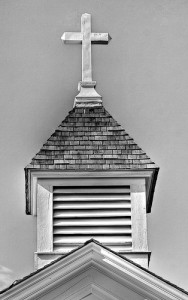Latino Congregations Unite To Fight Alabama Law
 This Thanksgiving won’t be like others in Alabama, at least not in the Latino churches and congregations. Latino churches have managed to slip under the English language radar in that state, and there, almost unnoticed, they’ve been plotting, organizing, uniting, informing and encouraging. Latino churches have become centers of opposition to Alabama’s anti-immigrant law.
This Thanksgiving won’t be like others in Alabama, at least not in the Latino churches and congregations. Latino churches have managed to slip under the English language radar in that state, and there, almost unnoticed, they’ve been plotting, organizing, uniting, informing and encouraging. Latino churches have become centers of opposition to Alabama’s anti-immigrant law.
The Associated Press reports:
In cities large and small, buildings owned by Hispanic congregations have been used for mass meetings and “know our rights” workshops where activists and organizers use Spanish to explain intricacies of the statute to community members, many of whom don’t speak English.
The law went into effect in September, and since then Alabama Latino congregations have been active, spurred by their belief and their moral and religious understanding. Church leaders have been helping their congregations understand the consequences of the law; they offer comfort, spiritual and material; and provide a base for activists to organize their efforts.
Ironically, it was their christian brethren who enacted the law to begin with:
Conservative Christians helped push through the law: (Gov. Robert) Bentley himself is a Southern Baptist deacon. But amid fear over the law, Pastor Fernando Rodriguez said he and members of his Spanish-language church, Luz a las Naciones, feel compelled to help their mostly immigrant community because of their Christian beliefs. In English, the church’s name means “Light to the Nations.”
There’s an old truism that says that the most segregated time in America is 10 o’clock Sunday morning, when most Americans are in church. Come this Thursday that segregation will be stark in Alabama.
Rodriguez, the pastor from Albertville, said Hispanic churches are trying to figure out how to be even more active, but many pastors and members don’t know what to do and others are scared. He said he has tried to build ties with English-speaking ministers in northeast Alabama, but that’s tough given the state’s political climate.
“They never want to get close with us,” he said. “Sometimes it is hard to work with people with closed minds.”
Sadly, attendance and congregation size has diminished dramatically since the law went into effect. There is no accurate count of the number of Latino churches overall, but individual congregations are, in many cases, down to a handful of families.
[Photo by chefranden]
